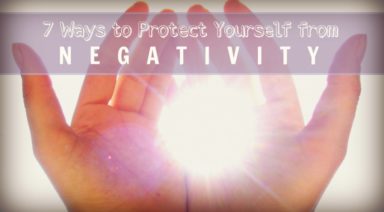Push Away Nothing: The Art of Receptivity

I received the weekly newsletter from UPAYA Zen Centre via email. It opened with a quote from Frank Ostaseski:
“The First Precept: Welcome everything. Push away nothing… At the deepest level, we are being asked to cultivate a kind of fearless receptivity.”
There is more to the quote and I encourage you to source the rest of it. “Push away nothing.” There was something freeing about that statement. It felt almost paradoxical. We tend to protect ourselves from the experiences and situations we deem bad, harmful, stressful, discouraging. There was a sense of liberation in his statement. I felt as though it contained a secret key. I have found over my years of spiritual seeking, that when I stumble across a paradox or a deeply contrary belief, I am usually stumbling onto something great.
“Welcome everything.” It wasn’t to say that I welcomed awful things. It was when I found myself fighting against what was happening, that I stopped and repeated the words, “Welcome everything.”
Fear keeps us from welcoming everything. There was a time I lived by the phrase, “The garbage you know is better than the garbage you don’t.” (Well, maybe I didn’t use the word garbage). What do we think is going to happen? And why do we assume it is less than what we have now? Perhaps it will be greater than we can imagine.
“Push away nothing.” I was starting a new venture with a dear friend and the timing of this new mantra was perfect. I took it into every challenge and situation that arose in the early stages of creating our vision and bringing our project to life. When conflict came, I welcomed it. When the workload grew, even though it was summer holidays and I had planned to be loafing around doing yoga in the garden and playing with the kids, I welcomed it. When I had to wait for others in order to move forward, I welcomed it. I pushed away nothing but something fell away all on its own. As I welcomed each and every circumstance, feeling and thought, struggle fell away. As I welcomed everything, everything became easier.
The new venture emerged with much work and little struggle. Finally, I made the time to enjoy an end of summer yoga class. The summer work and activity schedule had gotten the best of my back. I altered the poses. Rather than flow from up dog to down, I took an extra plank, reducing the movement in my spine. I lay on my back in a tense version of setu bhandasana, or bridge pose, mitigating back pain by squeezing my glutes tighter. I wondered why my back was in such a state after a long period pain-free. I wished the pain would go away so I could enjoy my practice.
“Push away nothing.” The mantra found me on my mat. I released my glutes and my tension. “Welcome everything.” I breathed deeply into my back and the discomfort. I moved through the remaining practice with breath and mantra, welcoming the state of my body and the opportunity to gently back off from the full expression of the poses. I took seated twist and simply allowed myself to back off. In backing off, I discovered deeper release and the ability to move further into the pose with greater ease. In welcoming the condition of my body and allowing it to guide my practice, I found more freedom and flexibility.
I woke the next morning with more mobility in my spine and my mind. Seemingly counter-intuitive, there is great freedom in Frank Ostaseski’s words. I am grateful he shared them and I adopt them with fearless receptivity.
Being an Empathic Warrior: Self-Care and Protection for Empaths

An Empath is a highly sensitive person, often referred to as HSP, but the HSP label is not entirely correct. HSPs are sensitive to light, sound, experiences, and emotions, while Empaths will embody the emotions, experiences, and relational energy of others. This means that Empaths not only feel what you are feeling, but often have intel on how you can untangle your mess and improve your life. When Empaths heal themselves and get beyond their egos, they can become emotional superheroes.
Many Empaths must learn how to set clear boundaries with family members and friends. They have to adopt practices, habits, and rituals that help them clear the emotional debris they often collect through everyday experiences. Empaths are big-hearted, intuitive sponges. It’s not complicated; if you feel it, they feel it.
Because Empaths tend to live with one foot other realms, they sometimes find it difficult living in the real world. To be grounded and happy, Empaths often need:
- Time to consider, embrace and integrate personal and work relationships
- Healthy food and helpful supplements
- Meditation and prayer
- Leisure activities that don’t involve crowds. For example, most Empaths might avoid shopping at Walmart and wild parties on the 4th of July.
Empaths need space and solitude to allow for careful introspection. Empaths also need to regularly express their emotions, which is most often, sadness. If you’re an Empath, you might be shy, spiritually inclined, a lover of solitude, and clairvoyant. You might also love to write, paint, sculpt or dance more than most artists. The fiercest Empaths will cut a relationship cord in the blink of an eye.





































